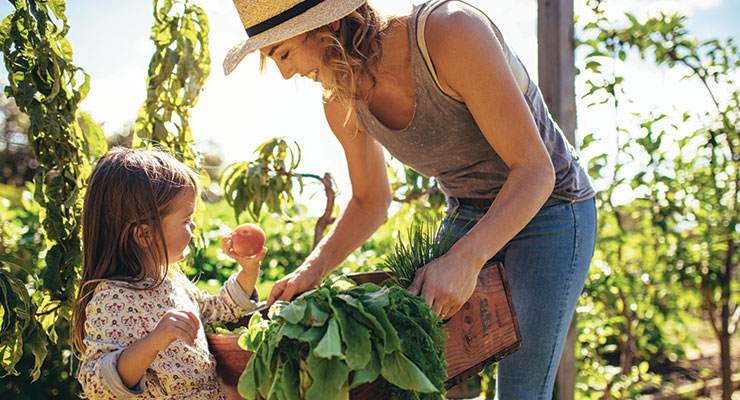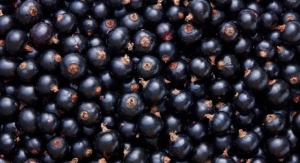By Sean Moloughney, Editor03.01.19
A rapidly growing global population, an industrialized food system that has led to overconsumption and undernutrition, a changing climate and degrading environment are pushing the limits of what Earth can sustain, according to experts who are calling for urgent changes.
Global Pandemics
Over the past two decades, obesity, undernutrition, and climate change have become global pandemics that share common social and economic drivers, which an expert commission has termed the “global syndemic” in a ground-breaking report that explored the paramount challenge these three pandemics present for human and planetary health.
The Lancet Commission on Obesity, a joint venture between the World Obesity Federation, the University of Auckland (New Zealand), George Washington University, and The Lancet, urged leaders to take a hard line against commercial interests and rethink economic incentives within the food system. In fact, the commission called for a new global treaty on food systems to limit the political influence of transnational food and beverage firms that undermine health for people and planet.
The four major systems driving the global syndemic are food, transportation, land use, and urban design. These challenges have been addressed separately due to policymakers’ reluctance to implement effective strategies, opposition by vested commercial interests, and insufficient public demand for change, according to the report.
However, undernutrition is declining too slowly to meet global targets, no country has reversed its obesity epidemic, and comprehensive policy responses to the threat of climate change have barely begun. Meanwhile, globally, malnutrition and obesity are by far the biggest causes of poor health, premature sickness, and death. Affecting 2 billion people worldwide, they are expected to worsen with climate change.
“Undernutrition and obesity are both driven by the same unhealthy, inequitable food systems, underpinned by a focus on economic growth while ignoring the negative health and equity outcomes,” said commission co-chair Boyd Swinburn, professor of population nutrition and global health at the University of Auckland. “Pursuit of short-term profits by governments and businesses have enabled them to ignore the environmental damage to food and agricultural systems. Using a systems thinking approach to address the common drivers of the global syndemic allows us to consider shared solutions to address decades of policy inertia.”
The commission offered examples of actions that could help address the global problem. First, national governments should adopt sustainable dietary guidelines to support health for people and the planet. Second, national governments should use incentives to make it easier for people to live without cars and encourage affordable and active transportation to increase physical activity, provide low-income people with transportation options to buy healthy foods, and to lower greenhouse gas emissions produced
by automobiles.
Last year, the United Nations Intergovernmental Panel on Climate Change cautioned that governments have 12 years to implement changes by 2030 to energy, infrastructure, and industry systems to avoid the two-degree Celsius increase in the Earth’s temperature that will drive global warming.
The commission also called for national governments and the United Nations system bodies, including the World Health Organization, to establish and adopt a Framework Convention on Food Systems to reduce the influence of the food, beverage, and agricultural industries on government policymaking that perpetuate unhealthy and unsustainable environments. Governments also need to incentivize businesses and mobilize communities to implement actions that support healthy, resilient, equitable, and sustainable food systems. Finally, a global philanthropic fund should be established to help communities and civil society advocate for effective changes.
Regenerating the Food System
Transformation of the global food system is urgently needed, according to another expert panel, the EAT-Lancet Commission, which provided scientific targets for a healthy diet from a sustainable food production system that operates within planetary boundaries for food. The commission is a 3-year project that brings together experts in health, nutrition, environmental sustainability, food systems, economics, and political governance.
More than 3 billion people are malnourished (including people who are overfed and undernourished), and food production is exceeding planetary boundaries—driving climate change, biodiversity loss, pollution due to over-application of nitrogen and phosphorus fertilizers, and unsustainable changes in water and land use, the commission said.
Human diets inextricably link health and environmental sustainability, and have the potential to nurture both, the report said. However, current diets are pushing the Earth beyond its planetary boundaries while causing ill health, putting both people and the planet at risk. Providing healthy diets from sustainable food systems is an immediate challenge as the population continues to grow—projected to reach 10 billion people by 2050—and get wealthier (with the expectation of higher consumption of animal-based foods).
To meet this challenge, dietary changes must be combined with improved food production and reduced food waste. The authors stressed that unprecedented global collaboration and commitment will be needed, alongside immediate changes such as refocusing agriculture to produce varied nutrient-rich crops, and increased governance of land and ocean use.
“The food we eat and how we produce it determines the health of people and the planet, and we are currently getting this seriously wrong,” said one of the commission authors, Tim Lang, professor of food policy at City University of London, U.K. “We need a significant overhaul, changing the global food system on a scale not seen before in ways appropriate to each country’s circumstances. While this is unchartered policy territory and these problems are not easily fixed, this goal is within reach and there are opportunities to adapt international, local, and business policies. The scientific targets we have devised for a healthy, sustainable diet are an important foundation which will underpin and drive this change.”
Based on the best available evidence, the commission proposed a dietary pattern that meets nutritional requirements, promotes health, and allows the world to stay within planetary boundaries. Compared with current diets, global adoption of the new recommendations by 2050 would require global consumption of foods such as red meat and sugar to decrease by more than 50%, while consumption of nuts, fruits, vegetables, and legumes must increase more than two-fold.
“The world’s diets must change dramatically. More than 800 million people have insufficient food, while many more consume an unhealthy diet that contributes to premature death and disease,” said co-lead commissioner Walter Willett, MD, professor of epidemiology and nutrition, Harvard University. “To be healthy, diets must have an appropriate calorie intake and consist of a variety of plant-based foods, low amounts of animal-based foods, unsaturated rather than saturated fats, and few refined grains, highly processed foods, and added sugars. The food group intake ranges that we suggest allow flexibility to accommodate various food types, agricultural systems, cultural traditions, and individual dietary preferences—including numerous omnivore, vegetarian, and vegan diets.”
Since the mid-1950s, the pace and scale of environmental change has grown exponentially. Food production is the largest source of environmental degradation. To be sustainable, food production must occur within food-related planetary boundaries for climate change, biodiversity loss, land and water use, as well as for nitrogen and phosphorus cycles, according to the report. However, production must also be sustainably intensified to meet the global population’s growing food demands.
This will require decarbonizing agricultural production by eliminating the use of fossil fuels and land use change losses of CO2 in agriculture. In addition, zero loss of biodiversity, net zero expansion of agricultural land into natural ecosystems, and drastic improvements in fertilizer and water use efficiencies are needed.
“Designing and operationalizing sustainable food systems that can deliver healthy diets for a growing and wealthier world population presents a formidable challenge; nothing less than a new global agricultural revolution,” said co-lead commissioner Johan Rockström, director of the Potsdam Institute for Climate Impact Research in Germany. “The good news is that it is not only doable, we have increasing evidence that it can be achieved through sustainable intensification that benefits both farmer, consumer, and planet.”
Humanity now poses a threat to the stability of the planet, he continued. “Sustainability of the food system must therefore be defined from a planetary perspective. Five key environmental processes regulate the state of the planet. Our definition of sustainable food production requires that we use no additional land, safeguard existing biodiversity, reduce consumptive water use and manage water responsibly, substantially reduce nitrogen and phosphorus pollution, produce zero carbon dioxide emissions, and cause no further increase in methane and nitrous oxide emissions. There is no silver bullet for combatting harmful food production practices, but by defining and quantifying a safe operating space for food systems, diets can be identified that will nurture human health and support environmental sustainability.”
The commission proposed five strategies to adjust what people eat and how it is produced. First, policies to encourage people to choose healthy diets are needed, including improving availability and accessibility to healthy food through improved logistics and storage, increased food security, and policies that promote buying from sustainable sources. Alongside advertising restrictions and education campaigns, affordability is also crucial, and food prices must reflect production and environmental costs. As this may increase costs to consumers, social protection for vulnerable groups may be required to avoid continued poor nutrition in low-income groups.
Strategies to refocus agriculture from producing high volumes of crops to producing varied nutrient-rich crops are also needed. Currently, small and medium farms supply more than 50% of the essential nutrients in the global food supply. Global agriculture policies should incentivize producers to grow nutritious, plant-based foods, develop programs that support diverse production systems, and increase research funding for ways to increase nutrition and sustainability. In some contexts, animal farming is important to nutrition and the ecosystem, and the benefits and risks of animal farming should be considered on a case-by-case basis, the commission said.
Sustainably intensifying agriculture will also be key, and must take into account local conditions to help apply appropriate agricultural practices and generate sustainable, high quality crops.
Equally, effective governance of land and ocean use will be important to preserve natural ecosystems and ensure continued food supplies. This could be achieved through protecting intact natural areas on land (potentially through incentives), prohibiting land clearing, restoring degraded land, removing harmful fishing subsidies, and closing at least 10% of marine areas to fishing (including the high seas to create fish banks).
Lastly, food waste must be at least halved. The majority of food waste occurs in low- and middle-income countries during food production due to poor harvest planning, lack of access to markets preventing produce from being sold, and lack of infrastructure to store and process foods. Improved investment in technology and education for farmers is needed. Food waste is also an issue in high-income countries, where it can be resolved through campaigns to improve shopping habits, help consumers understand “best before” and “use by”dates, and improve food storage, preparation, portion sizes, etc.
Sustainable Consumption
Meanwhile, sales data from Nielsen shows U.S. consumers are flexing their spending power to effect the change they want to see in the world. Nearly half (48%) of U.S. consumers say they would definitely or probably change their consumption habits to reduce their impact on the environment. And these consumers are putting their dollars where their values are, spending $128.5 billion on sustainable fast-moving consumer goods (FMCG) products in 2018, according to Nielsen.
Since 2014, these influential shoppers have grown sustainable product sales by nearly 20%, with a compound average growth rate (CAGR) that’s four times larger than conventional products (3.5% vs -1.0% comparatively). By 2021, Nielsen predicted these sustainably minded shoppers will spend up to $150 billion on sustainable FMCG goods, an increase of $14-22 billion.
Today, sales of products with sustainable attributes make up 22% of the total store, with organic, sustainable, and clean attributes driving the majority of the sustainable category’s growth. Notably, sustainability’s share between 2014 and 2017 grew nearly three percentage points, while conventional products’ share of sales dropped by almost four. By 2021, sustainable goods will make up 25% of store sales, according to Nielsen.
In the U.S., there is a large gap between generations when it comes to sustainable purchase intent. When surveyed, millennials are twice as likely as baby boomers (75% vs. 34%) to say they are definitely or probably changing their habits to reduce their impact on the environment. They’re also more willing to pay more for products that contain environmentally friendly or sustainable ingredients (90% vs. 61%), organic/natural ingredients (86% vs. 59%), or products that have social responsibility claims (80% vs. 48%).
Additionally, 55% of consumers say they are willing to pay more for a dietary supplement product if it was made from a sustainable source, according to survey data from the Natural Marketing Institute (NMI) commissioned by Lonza Consumer Health & Nutrition.
Millennials, however, are also more likely than baby boomers (53% vs. 34%) to say they’d be willing to forgo a brand in order to buy products that are environmentally friendly, according to Nielsen data. They also find it much easier to find environmentally friendly products in the stores where they shop (74% vs. 46%).
Age isn’t the only factor to consider when targeting sustainable consumers. According to Nielsen and NMI’s segmentation, 60% of Americans fall into the “Sustainable Mainstream” category. They want to be more sustainable, but they are also searching for some added benefits, such as improving health or cost and environmental savings.
Companies need to evaluate their product portfolios and then understand the impact of ingredients and the level of scrutiny that consumers apply to the products they purchase. Consumer sentiment is shifting toward “healthy for me and healthy for the world,” and this is influencing sales of FMCG products across multiple categories. Technology will enable consumers to match the right ingredients to their needs or ailments. Companies will need to clearly communicate and have the data to prove how their sustainable factors help consumers, according to Nielsen.
The Plastic Problem
The United Nations estimated that more than 8 million tons of plastic flows into the oceans each year. From plastic straws to take-out food containers, plastic has quickly become enemy number one, as some companies and cities have begun instituting bans. New, emerging technologies could also help stem the tide by rerouting waste into useful products, clean fuels, and other items.
“I Want a Plastic Free World” is among Euromonitor International’s top 10 global consumer trends for 2019. “Consumers will increasingly use their wallets to protest the irresponsible use of plastic, which could, in turn, create a virtuous circle where industry, from food and beverages to beauty and personal care manufacturers and beyond, stand to gain by improving sustainability,” the market research firm said.
“From images of the ‘Great Pacific Garbage Patch’ to footage of marine life choking on waste, the BBC’s eponymous ‘Blue Planet’ has taken the issue mainstream and encouraged consumers to realize the full extent of the impact of our plastic-based society on the natural world. Awareness is encouraging people to take action, through campaigns and grassroots conservation projects.”
Euromonitor estimated that 63% of global packaging across the food, beverage, beauty, home care, and pet food industries is currently made from plastic, which has become the preferred material for a range of reasons, including its versatility. But the rate at which this vast quantity of plastic packaging is recovered, recycled, and re-used is far from optimal.
There is a widespread lack of consumer understanding about what can and can’t be recycled, partly due to little standardization in package labeling, Euromonitor noted. “Much of the Western world’s plastic waste has been shipped to China for treatment and re-purposing, but the Chinese Government’s decision to end this trade in 2018 will lead many Western nations to rethink their recycling policies.”
In Europe, Germany has high recyclability rates, with deposit return schemes for plastic bottles and efficient municipal recycling programs contributing to a reduction in plastic waste. However, many countries do not have the infrastructure, resources or political will to put a similar system in place. “To compound the waste issue, we live in a throw-away society where on-the-go food and beverage products are becoming increasingly common as people try to manage their busy lives and seek convenient solutions,” Euromonitor said.
Consumers are willing to pay more for eco-friendly and recyclable products though, as they are increasingly sensitive to issues of plastic waste. “Notable NGO and legislative initiatives targeting plastic have pushed plastic high up the public agenda,” said Rosemarie Downey, global head of packaging research at Euromonitor. “Some retailers are making plastic-free commitments and brands are pledging to go further on re-use, recycled, and recyclable packaging.”
Closing the Loop
In pursuit of a waste-free, circular economy, a coalition of consumer product companies along with international recycling leader TerraCycle unveiled a global shopping system called Loop in January. The program is designed to change the world’s reliance on single-use packaging while offering a convenient, enhanced circular solution to consumers and securing meaningful environmental benefits.
The aim of Loop is to offer a zero-waste option for the world’s most popular consumer products while maintaining affordability, improving convenience, and returning used disposable or durable items to a circular life cycle either through reuse or recycling.
Founding partners include consumer product companies like Procter & Gamble, Nestlé, PepsiCo, Unilever, Mars Petcare, The Clorox Company, The Body Shop, Coca-Cola, Mondelēz International, Danone, U.K. retailer Tesco, primary logistics and transportation company UPS, and sustainable resource management company Suez.
According to Loop, the environmental benefits of the program’s durable packaging compared to single use packaging have been verified in Life Cycle Assessments under usage pattern assumptions that will be further validated in pilots scheduled to launch in France and the northeastern U.S. this spring. Additional markets are expected to launch throughout 2019 and 2020.
“Loop will not just eliminate the idea of packaging waste, but greatly improve the product experience and the convenience in how we shop,” said TerraCycle CEO Tom Szaky. “Through Loop, consumers can now responsibly consume products in specially designed durable, reusable, or fully recyclable packaging made from materials like alloys, glass, and engineered plastics. When a consumer returns the packaging, it is refilled, or the content is reused or recycled through groundbreaking technology.”
Consumers can shop at www.loopstore.com, www.maboutiqueloop.fr, or partner retailer’s websites for brands now redesigned to be packaging-waste-free. They receive products in Loop’s specially designed shipping tote that eliminates the need for single-use shipping materials like cardboard boxes.
There is no need to clean and dispose of the package. As consumers finish their products, they place the empty package into one of their totes. Loop then retrieves them directly from consumers’ homes.
According to the company, its team of scientists has developed custom cleaning technologies so that each container may be safely reused. Loop then replenishes products as needed and returns the refilled shipping totes to the consumer.
Global Pandemics
Over the past two decades, obesity, undernutrition, and climate change have become global pandemics that share common social and economic drivers, which an expert commission has termed the “global syndemic” in a ground-breaking report that explored the paramount challenge these three pandemics present for human and planetary health.
The Lancet Commission on Obesity, a joint venture between the World Obesity Federation, the University of Auckland (New Zealand), George Washington University, and The Lancet, urged leaders to take a hard line against commercial interests and rethink economic incentives within the food system. In fact, the commission called for a new global treaty on food systems to limit the political influence of transnational food and beverage firms that undermine health for people and planet.
The four major systems driving the global syndemic are food, transportation, land use, and urban design. These challenges have been addressed separately due to policymakers’ reluctance to implement effective strategies, opposition by vested commercial interests, and insufficient public demand for change, according to the report.
However, undernutrition is declining too slowly to meet global targets, no country has reversed its obesity epidemic, and comprehensive policy responses to the threat of climate change have barely begun. Meanwhile, globally, malnutrition and obesity are by far the biggest causes of poor health, premature sickness, and death. Affecting 2 billion people worldwide, they are expected to worsen with climate change.
“Undernutrition and obesity are both driven by the same unhealthy, inequitable food systems, underpinned by a focus on economic growth while ignoring the negative health and equity outcomes,” said commission co-chair Boyd Swinburn, professor of population nutrition and global health at the University of Auckland. “Pursuit of short-term profits by governments and businesses have enabled them to ignore the environmental damage to food and agricultural systems. Using a systems thinking approach to address the common drivers of the global syndemic allows us to consider shared solutions to address decades of policy inertia.”
The commission offered examples of actions that could help address the global problem. First, national governments should adopt sustainable dietary guidelines to support health for people and the planet. Second, national governments should use incentives to make it easier for people to live without cars and encourage affordable and active transportation to increase physical activity, provide low-income people with transportation options to buy healthy foods, and to lower greenhouse gas emissions produced
by automobiles.
Last year, the United Nations Intergovernmental Panel on Climate Change cautioned that governments have 12 years to implement changes by 2030 to energy, infrastructure, and industry systems to avoid the two-degree Celsius increase in the Earth’s temperature that will drive global warming.
The commission also called for national governments and the United Nations system bodies, including the World Health Organization, to establish and adopt a Framework Convention on Food Systems to reduce the influence of the food, beverage, and agricultural industries on government policymaking that perpetuate unhealthy and unsustainable environments. Governments also need to incentivize businesses and mobilize communities to implement actions that support healthy, resilient, equitable, and sustainable food systems. Finally, a global philanthropic fund should be established to help communities and civil society advocate for effective changes.
Regenerating the Food System
Transformation of the global food system is urgently needed, according to another expert panel, the EAT-Lancet Commission, which provided scientific targets for a healthy diet from a sustainable food production system that operates within planetary boundaries for food. The commission is a 3-year project that brings together experts in health, nutrition, environmental sustainability, food systems, economics, and political governance.
More than 3 billion people are malnourished (including people who are overfed and undernourished), and food production is exceeding planetary boundaries—driving climate change, biodiversity loss, pollution due to over-application of nitrogen and phosphorus fertilizers, and unsustainable changes in water and land use, the commission said.
Human diets inextricably link health and environmental sustainability, and have the potential to nurture both, the report said. However, current diets are pushing the Earth beyond its planetary boundaries while causing ill health, putting both people and the planet at risk. Providing healthy diets from sustainable food systems is an immediate challenge as the population continues to grow—projected to reach 10 billion people by 2050—and get wealthier (with the expectation of higher consumption of animal-based foods).
To meet this challenge, dietary changes must be combined with improved food production and reduced food waste. The authors stressed that unprecedented global collaboration and commitment will be needed, alongside immediate changes such as refocusing agriculture to produce varied nutrient-rich crops, and increased governance of land and ocean use.
“The food we eat and how we produce it determines the health of people and the planet, and we are currently getting this seriously wrong,” said one of the commission authors, Tim Lang, professor of food policy at City University of London, U.K. “We need a significant overhaul, changing the global food system on a scale not seen before in ways appropriate to each country’s circumstances. While this is unchartered policy territory and these problems are not easily fixed, this goal is within reach and there are opportunities to adapt international, local, and business policies. The scientific targets we have devised for a healthy, sustainable diet are an important foundation which will underpin and drive this change.”
Based on the best available evidence, the commission proposed a dietary pattern that meets nutritional requirements, promotes health, and allows the world to stay within planetary boundaries. Compared with current diets, global adoption of the new recommendations by 2050 would require global consumption of foods such as red meat and sugar to decrease by more than 50%, while consumption of nuts, fruits, vegetables, and legumes must increase more than two-fold.
“The world’s diets must change dramatically. More than 800 million people have insufficient food, while many more consume an unhealthy diet that contributes to premature death and disease,” said co-lead commissioner Walter Willett, MD, professor of epidemiology and nutrition, Harvard University. “To be healthy, diets must have an appropriate calorie intake and consist of a variety of plant-based foods, low amounts of animal-based foods, unsaturated rather than saturated fats, and few refined grains, highly processed foods, and added sugars. The food group intake ranges that we suggest allow flexibility to accommodate various food types, agricultural systems, cultural traditions, and individual dietary preferences—including numerous omnivore, vegetarian, and vegan diets.”
Since the mid-1950s, the pace and scale of environmental change has grown exponentially. Food production is the largest source of environmental degradation. To be sustainable, food production must occur within food-related planetary boundaries for climate change, biodiversity loss, land and water use, as well as for nitrogen and phosphorus cycles, according to the report. However, production must also be sustainably intensified to meet the global population’s growing food demands.
This will require decarbonizing agricultural production by eliminating the use of fossil fuels and land use change losses of CO2 in agriculture. In addition, zero loss of biodiversity, net zero expansion of agricultural land into natural ecosystems, and drastic improvements in fertilizer and water use efficiencies are needed.
“Designing and operationalizing sustainable food systems that can deliver healthy diets for a growing and wealthier world population presents a formidable challenge; nothing less than a new global agricultural revolution,” said co-lead commissioner Johan Rockström, director of the Potsdam Institute for Climate Impact Research in Germany. “The good news is that it is not only doable, we have increasing evidence that it can be achieved through sustainable intensification that benefits both farmer, consumer, and planet.”
Humanity now poses a threat to the stability of the planet, he continued. “Sustainability of the food system must therefore be defined from a planetary perspective. Five key environmental processes regulate the state of the planet. Our definition of sustainable food production requires that we use no additional land, safeguard existing biodiversity, reduce consumptive water use and manage water responsibly, substantially reduce nitrogen and phosphorus pollution, produce zero carbon dioxide emissions, and cause no further increase in methane and nitrous oxide emissions. There is no silver bullet for combatting harmful food production practices, but by defining and quantifying a safe operating space for food systems, diets can be identified that will nurture human health and support environmental sustainability.”
The commission proposed five strategies to adjust what people eat and how it is produced. First, policies to encourage people to choose healthy diets are needed, including improving availability and accessibility to healthy food through improved logistics and storage, increased food security, and policies that promote buying from sustainable sources. Alongside advertising restrictions and education campaigns, affordability is also crucial, and food prices must reflect production and environmental costs. As this may increase costs to consumers, social protection for vulnerable groups may be required to avoid continued poor nutrition in low-income groups.
Strategies to refocus agriculture from producing high volumes of crops to producing varied nutrient-rich crops are also needed. Currently, small and medium farms supply more than 50% of the essential nutrients in the global food supply. Global agriculture policies should incentivize producers to grow nutritious, plant-based foods, develop programs that support diverse production systems, and increase research funding for ways to increase nutrition and sustainability. In some contexts, animal farming is important to nutrition and the ecosystem, and the benefits and risks of animal farming should be considered on a case-by-case basis, the commission said.
Sustainably intensifying agriculture will also be key, and must take into account local conditions to help apply appropriate agricultural practices and generate sustainable, high quality crops.
Equally, effective governance of land and ocean use will be important to preserve natural ecosystems and ensure continued food supplies. This could be achieved through protecting intact natural areas on land (potentially through incentives), prohibiting land clearing, restoring degraded land, removing harmful fishing subsidies, and closing at least 10% of marine areas to fishing (including the high seas to create fish banks).
Lastly, food waste must be at least halved. The majority of food waste occurs in low- and middle-income countries during food production due to poor harvest planning, lack of access to markets preventing produce from being sold, and lack of infrastructure to store and process foods. Improved investment in technology and education for farmers is needed. Food waste is also an issue in high-income countries, where it can be resolved through campaigns to improve shopping habits, help consumers understand “best before” and “use by”dates, and improve food storage, preparation, portion sizes, etc.
Sustainable Consumption
Meanwhile, sales data from Nielsen shows U.S. consumers are flexing their spending power to effect the change they want to see in the world. Nearly half (48%) of U.S. consumers say they would definitely or probably change their consumption habits to reduce their impact on the environment. And these consumers are putting their dollars where their values are, spending $128.5 billion on sustainable fast-moving consumer goods (FMCG) products in 2018, according to Nielsen.
Since 2014, these influential shoppers have grown sustainable product sales by nearly 20%, with a compound average growth rate (CAGR) that’s four times larger than conventional products (3.5% vs -1.0% comparatively). By 2021, Nielsen predicted these sustainably minded shoppers will spend up to $150 billion on sustainable FMCG goods, an increase of $14-22 billion.
Today, sales of products with sustainable attributes make up 22% of the total store, with organic, sustainable, and clean attributes driving the majority of the sustainable category’s growth. Notably, sustainability’s share between 2014 and 2017 grew nearly three percentage points, while conventional products’ share of sales dropped by almost four. By 2021, sustainable goods will make up 25% of store sales, according to Nielsen.
In the U.S., there is a large gap between generations when it comes to sustainable purchase intent. When surveyed, millennials are twice as likely as baby boomers (75% vs. 34%) to say they are definitely or probably changing their habits to reduce their impact on the environment. They’re also more willing to pay more for products that contain environmentally friendly or sustainable ingredients (90% vs. 61%), organic/natural ingredients (86% vs. 59%), or products that have social responsibility claims (80% vs. 48%).
Additionally, 55% of consumers say they are willing to pay more for a dietary supplement product if it was made from a sustainable source, according to survey data from the Natural Marketing Institute (NMI) commissioned by Lonza Consumer Health & Nutrition.
Millennials, however, are also more likely than baby boomers (53% vs. 34%) to say they’d be willing to forgo a brand in order to buy products that are environmentally friendly, according to Nielsen data. They also find it much easier to find environmentally friendly products in the stores where they shop (74% vs. 46%).
Age isn’t the only factor to consider when targeting sustainable consumers. According to Nielsen and NMI’s segmentation, 60% of Americans fall into the “Sustainable Mainstream” category. They want to be more sustainable, but they are also searching for some added benefits, such as improving health or cost and environmental savings.
Companies need to evaluate their product portfolios and then understand the impact of ingredients and the level of scrutiny that consumers apply to the products they purchase. Consumer sentiment is shifting toward “healthy for me and healthy for the world,” and this is influencing sales of FMCG products across multiple categories. Technology will enable consumers to match the right ingredients to their needs or ailments. Companies will need to clearly communicate and have the data to prove how their sustainable factors help consumers, according to Nielsen.
The Plastic Problem
The United Nations estimated that more than 8 million tons of plastic flows into the oceans each year. From plastic straws to take-out food containers, plastic has quickly become enemy number one, as some companies and cities have begun instituting bans. New, emerging technologies could also help stem the tide by rerouting waste into useful products, clean fuels, and other items.
“I Want a Plastic Free World” is among Euromonitor International’s top 10 global consumer trends for 2019. “Consumers will increasingly use their wallets to protest the irresponsible use of plastic, which could, in turn, create a virtuous circle where industry, from food and beverages to beauty and personal care manufacturers and beyond, stand to gain by improving sustainability,” the market research firm said.
“From images of the ‘Great Pacific Garbage Patch’ to footage of marine life choking on waste, the BBC’s eponymous ‘Blue Planet’ has taken the issue mainstream and encouraged consumers to realize the full extent of the impact of our plastic-based society on the natural world. Awareness is encouraging people to take action, through campaigns and grassroots conservation projects.”
Euromonitor estimated that 63% of global packaging across the food, beverage, beauty, home care, and pet food industries is currently made from plastic, which has become the preferred material for a range of reasons, including its versatility. But the rate at which this vast quantity of plastic packaging is recovered, recycled, and re-used is far from optimal.
There is a widespread lack of consumer understanding about what can and can’t be recycled, partly due to little standardization in package labeling, Euromonitor noted. “Much of the Western world’s plastic waste has been shipped to China for treatment and re-purposing, but the Chinese Government’s decision to end this trade in 2018 will lead many Western nations to rethink their recycling policies.”
In Europe, Germany has high recyclability rates, with deposit return schemes for plastic bottles and efficient municipal recycling programs contributing to a reduction in plastic waste. However, many countries do not have the infrastructure, resources or political will to put a similar system in place. “To compound the waste issue, we live in a throw-away society where on-the-go food and beverage products are becoming increasingly common as people try to manage their busy lives and seek convenient solutions,” Euromonitor said.
Consumers are willing to pay more for eco-friendly and recyclable products though, as they are increasingly sensitive to issues of plastic waste. “Notable NGO and legislative initiatives targeting plastic have pushed plastic high up the public agenda,” said Rosemarie Downey, global head of packaging research at Euromonitor. “Some retailers are making plastic-free commitments and brands are pledging to go further on re-use, recycled, and recyclable packaging.”
Closing the Loop
In pursuit of a waste-free, circular economy, a coalition of consumer product companies along with international recycling leader TerraCycle unveiled a global shopping system called Loop in January. The program is designed to change the world’s reliance on single-use packaging while offering a convenient, enhanced circular solution to consumers and securing meaningful environmental benefits.
The aim of Loop is to offer a zero-waste option for the world’s most popular consumer products while maintaining affordability, improving convenience, and returning used disposable or durable items to a circular life cycle either through reuse or recycling.
Founding partners include consumer product companies like Procter & Gamble, Nestlé, PepsiCo, Unilever, Mars Petcare, The Clorox Company, The Body Shop, Coca-Cola, Mondelēz International, Danone, U.K. retailer Tesco, primary logistics and transportation company UPS, and sustainable resource management company Suez.
According to Loop, the environmental benefits of the program’s durable packaging compared to single use packaging have been verified in Life Cycle Assessments under usage pattern assumptions that will be further validated in pilots scheduled to launch in France and the northeastern U.S. this spring. Additional markets are expected to launch throughout 2019 and 2020.
“Loop will not just eliminate the idea of packaging waste, but greatly improve the product experience and the convenience in how we shop,” said TerraCycle CEO Tom Szaky. “Through Loop, consumers can now responsibly consume products in specially designed durable, reusable, or fully recyclable packaging made from materials like alloys, glass, and engineered plastics. When a consumer returns the packaging, it is refilled, or the content is reused or recycled through groundbreaking technology.”
Consumers can shop at www.loopstore.com, www.maboutiqueloop.fr, or partner retailer’s websites for brands now redesigned to be packaging-waste-free. They receive products in Loop’s specially designed shipping tote that eliminates the need for single-use shipping materials like cardboard boxes.
There is no need to clean and dispose of the package. As consumers finish their products, they place the empty package into one of their totes. Loop then retrieves them directly from consumers’ homes.
According to the company, its team of scientists has developed custom cleaning technologies so that each container may be safely reused. Loop then replenishes products as needed and returns the refilled shipping totes to the consumer.




























